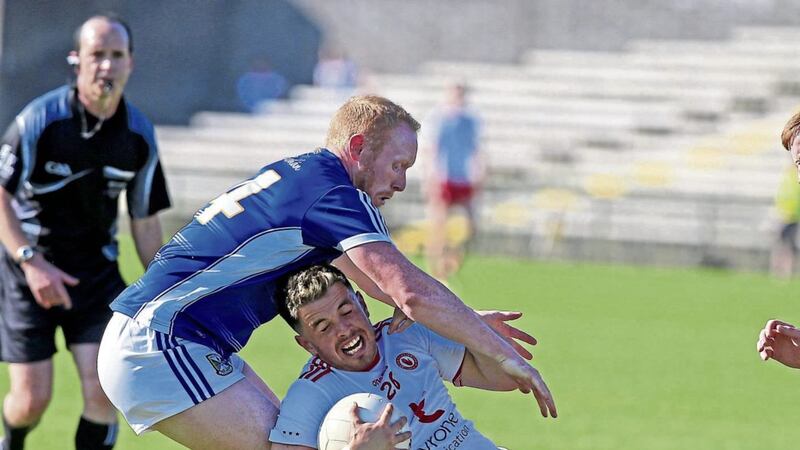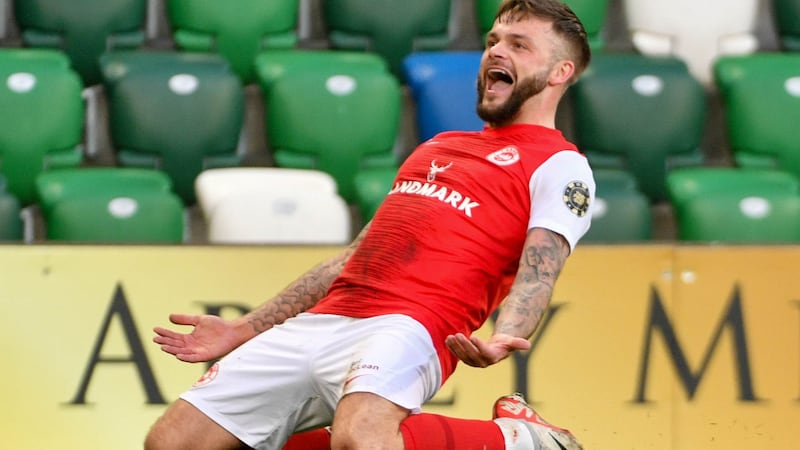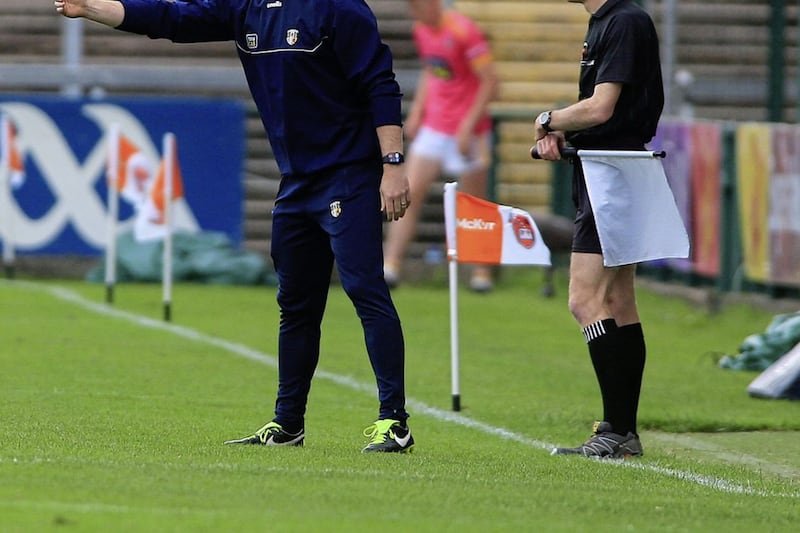MAYBE all this heat is making me cranky but I feel like I’m having a ‘Road to Damascus’ moment.
I have long argued that the defensive tactics that rule the modern game are simply a phase and that the game will continue to evolve.
I love thinking about and trying to look at the game at a deeper level, so I have enjoyed some of the tactical battles that we have seen and, in contrast to others who suggest it’s easy, have appreciated the training and coaching it requires to pull off such defensive gameplans successfully.
The obsession with defence has, of course, given us some awful games over the years but anyone with half a sense of perspective will surely accept that every generation had a fair share of dreadful games.
I have always suggested using some balance when listening to others giving out strongly.
But… but… but, even my patience is really beginning to wear thin.
These days I watch most games from the bubble of a press box, but for Tyrone’s Qualifier against Cavan last week I found myself in the middle of the supporters.
These are not the type of fans who sit at home or on a barstool, giving out about the game, yet never bother going.
I was amongst supporters who still love the game enough to dress up in their county colours, put up with the driving, parking and walking to games, pay in and bake in pretty uncomfortable seats when they could sit at home and watch on telly – Sky subscription required of course.
These people are the converted.
Yet the amount of times there was a palpable sense of frustration, or even boredom, with what they saw really struck me.
For all of my attempts to appreciate the modern game I couldn’t help but feel the same. So have I been lying to myself all along?
When I see a player in midfield in an inter-county game literally walking and soloing on the spot then, without a man within 10 yards, fist it back or to the side, I just think something isn’t right.
Peter Canavan, in his heyday, was one of the first to do this solo dancing on the spot.
For those of us in the crowd, it was edge of the seat stuff as you knew he was about to do something great – either pull off a decisive pass that no-one else had seen, or jink and burn the defender.
Nowadays, when I see a player doing the same thing I know I’ve about three or four minutes of lateral play to endure before someone either takes a pot-shot from distance, runs and gets fouled, runs and gets turned over by three or four players, or someone from the opposition switches off (possibly literally goes to sleep) and the team gets through for a score.
Given that the latter happens rarely, the first three options are basically the game as we know it.
Occasionally we do get a brilliant, fast counter-attack and these are great to see, but in no way do they make up for the rest of the drudge.
How often do we see a player soloing in loads of space before, when an opponent gets within 10 yards, stopping his run, turning and passing laterally?
Come on, this is senior Championship football we are talking about.
I can understand that he doesn’t want to take on a tackle and potentially get overcrowded and turned over, allowing the opposition to counter-attack.
But, to call a spade a spade, this is not the game I love, nor the game 95 per cent of GAA people love.
A player at any level, and especially at inter-county level, shouldn’t be running away from contact or be afraid of taking a man on.
Players now barely look for a long pass. Countless times while watching a game, I’ll glance between the attacking team’s forwards and their men coming out with the ball.
All the while I’ll be trying to read the game and see the runs/passes that might be made/given.
In our current game, far too often full-forwards barely bother to make the runs and players out the field don’t bother looking up.
Again it’s because such a ball played in, even if it is won, will leave a man isolated and therefore an easy target for a turnover.
While I’m in the mood for giving out, another gripe with the modern game is the demise of the man-on-man duals we used to love.
You used to be able to come away from a game and look through each battle, knowing who played well and who had come off second-best.
There was a manliness and simplicity to that and it meant there were no hiding places.
A side-effect of Jim McGuinness showing the naivety of such tactics is that players now have a multitude of hiding spaces.
The game, and the terms used in discussions about it, is like a ‘bluffers charter’.
‘Covering space’, ‘take the right option’, ‘patience’ – all useful attributes, but even the most limited footballer can cover space, fist the ball sideways if an opponent approaches and avoid taking on a man or trying a difficult pass.
There will always be some key men making the key moves, but too often there is just as many men bluffing their way through a game with no man-to-man duties and no distinct role – just run lots very quickly for great-looking GPS data.
If things go wrong, point to the manager’s ‘system’ or ‘set-up’ rather than take the blame for failing to measure up as man to man players.
The irony is that our modern players, to my eye, are more skilful and better trained than ever before.
The quality, when we see it, of the support play and finishing is awesome stuff but I think our game can be so much more than it frequently is at present.
This is not one of those stupid calls for teams to be entertaining. The only job of a team and a manager is to win.
Supporters are also primarily interested in the result, but speak to anyone leaving Ulster Championship games this year and the resigned shrug of the shoulders at the quality of the play speaks volumes.
The real issue is that, because the tactics are so effective, there is little evolutionary impulse to change.
The ‘Super 8s’ will be an acid test.
For the first time we will see the top teams play each other regularly at the height of the summer.
If the next few weeks don’t produce entertaining games we really need to look at things.
Rule changes, such as insisting three or four players stay up the pitch at all times, may need to be considered.
The biggest losers from such alterations would be the weaker teams who would feel robbed of their best chance of being competitive. Is that fair?
The ‘Super 8s’ may well show the benefit of tiered competition, or the need to change the game, but undoubtedly there are fundamental issues at play.
My sense is that if evolution isn’t working there just might need to be a revolution.








